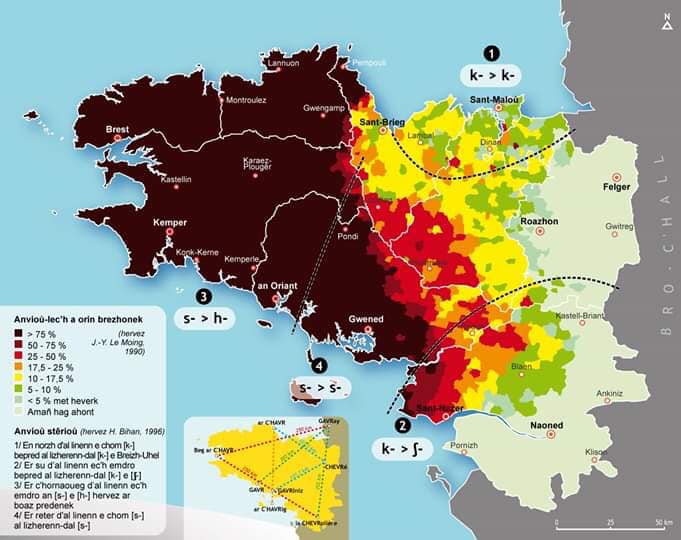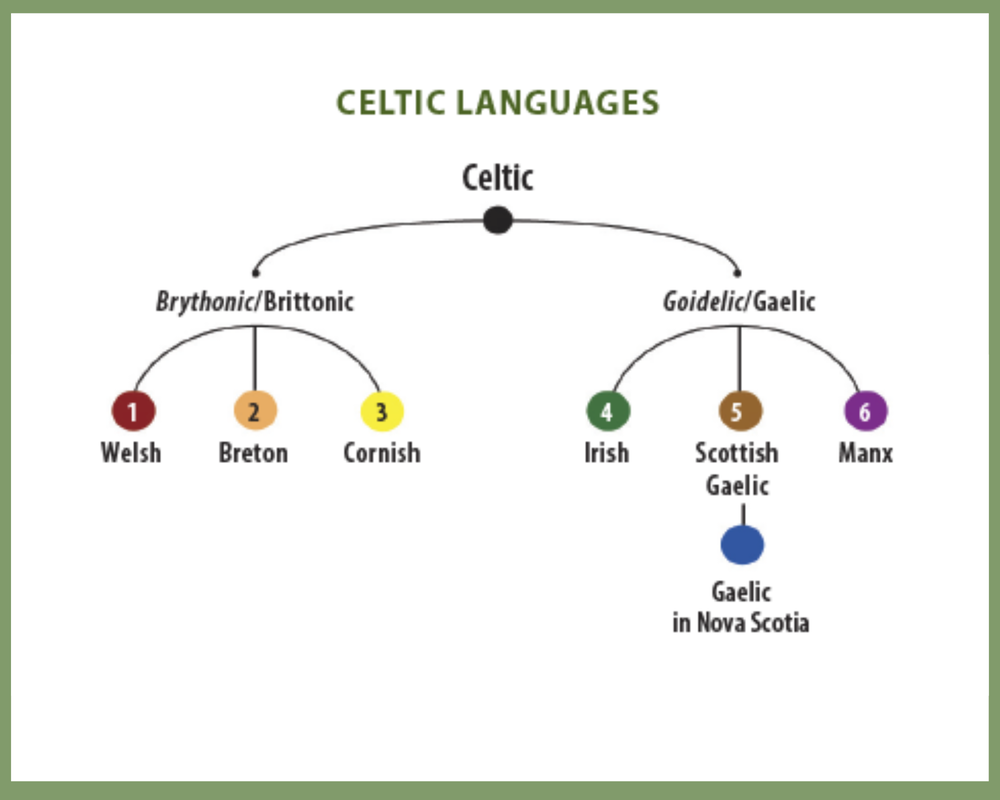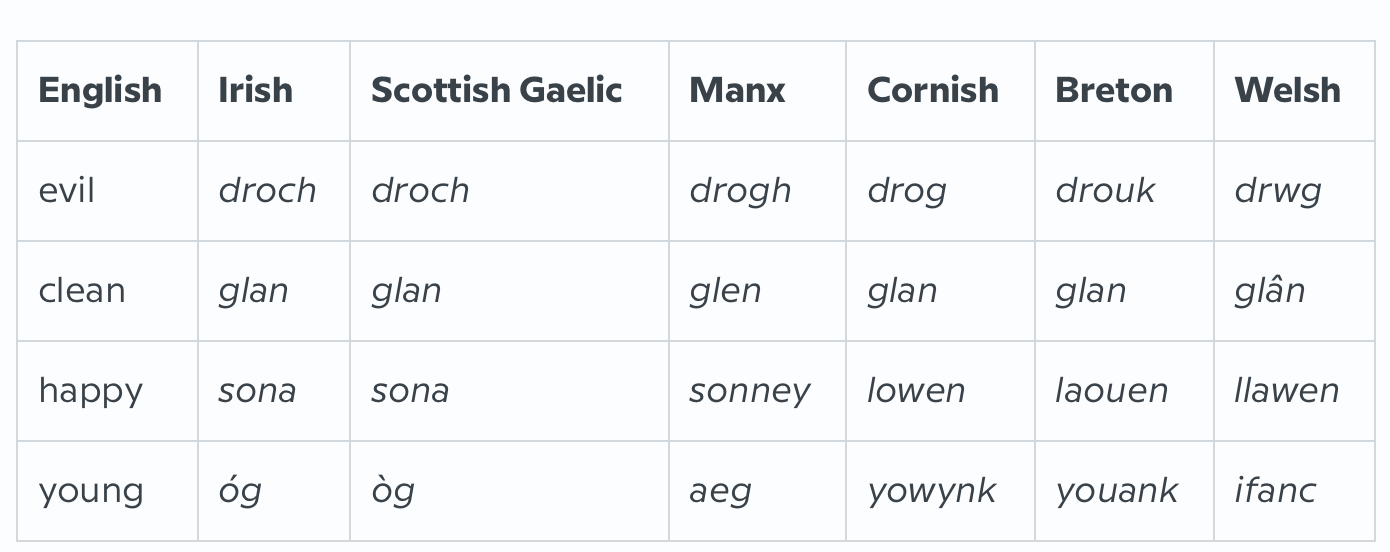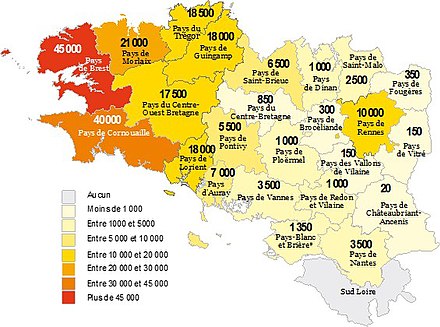Unveiling the Breton Language: Tracing the Celtic Legacy of BrittanyNestled in the scenic landscapes of Brittany, France, lies a linguistic gem that often remains concealed from the global spotlight – the Breton language. Unbeknownst to many, the Breton language boasts a rich history, deeply rooted in the ancient Celtic heritage. In this article, we embark on a journey to uncover the hidden tales of the Breton language, tracing its roots, its historical significance, its decline, and the ongoing efforts to preserve this unique linguistic treasure. A Glimpse Back in Time: History and Celtic OriginsThe Breton language stands as a remarkable testament to Celtic heritage, representing the sole Celtic language spoken on the European continent. Within the broader Indo-European language family, Breton shares common ground with languages like Cornish and Welsh. These languages have persevered across generations, finding their voices in places like Ireland, Scotland, the Isle of Man, Wales, Brittany, and Cornwall. Spanning more than a thousand years, the roots of the Breton language run deep, dating back at least to the 8th century. It was during this time that the first glossary in Breton appeared, marking the early stages of a vibrant literary tradition. Notably, Breton is divided into four dialects: Cornouaillais, Léonard, Trégorrois, and Vannetais, each tied to ancient bishoprics in Lower Brittany. Although differences in dialect exist, mutual intelligibility remains strong among speakers. Breton's journey traces back to the Middle Ages, as Roman influence in Armorica (the region encompassing Brittany) waned during the 5th and 6th centuries. This era saw migrations from Britain to Armorica, transforming the region into the Brittany we know today. Distinctive toponyms emerged during this period, bearing witness to the rich cultural and linguistic tapestry of the area. The Height of Glory: Breton as the Most Spoken Celtic Language Fast-forward to the early 1900s, and the Breton language had established itself as one of the most widely spoken Celtic languages in the world. It flourished in Brittany, a region that has long cherished its distinct culture and language. Breton was woven into the fabric of daily life, from family conversations to church gatherings, contributing to the cultural richness of the region. From a million speakers back in the 1950s to less than 200,000 today, Breton is at high risk of going extinct. Endangered Yet Resilient: The Status of Breton Today However, the passage of time brought challenges that began to erode the dominance of the Breton language. As the world became more interconnected and globalized, dominant languages gained prominence. French government policies and the allure of modernity led to a decline in the use of Breton. Since the 19th century, under the Third, Fourth and now Fifth Republics, the French government has attempted to stamp out minority languages—including Breton—in state schools, in an effort to build a national culture. Teachers humiliated students for using their regional languages, and such practices prevailed until the late 1960s. Today, the Breton language stands at a critical juncture, classified as "severely endangered" by UNESCO. The number of fluent speakers has dwindled, with elderly generations often representing the last stronghold of native speakers. Amidst these challenges, the Breton language continues to display remarkable resilience. The story of its survival involves the tenacious efforts of individuals, organizations, and the Breton-speaking community. Recognizing the significance of preserving their heritage, they have forged initiatives aimed at revitalizing the language. In contrast, the French government's stance on regional languages, including Breton, has been a subject of contention. Critics argue that past policies have hindered rather than supported their preservation. The French Republic's tradition of promoting a unified national identity through the dominance of the French language has, at times, clashed with regional linguistic diversity. Preservation Efforts: Breathing New Life into Breton The story of the Breton language doesn't end with its endangered status. Passionate individuals, communities, and organizations have stepped up to ensure its preservation. The recognition of the Breton language as an essential aspect of Brittany's cultural identity has sparked a revival movement. Language enthusiasts, educators, and policymakers are collaborating to rekindle interest in Breton, particularly among the younger generation. Efforts to preserve Breton include:
The Breton language is more than just words – it's a testament to the resilience of a culture that has weathered the tides of time. While facing challenges and uncertainties, the Breton language continues to inspire hope and dedication among those who recognize its value. As efforts to preserve and promote Breton gather momentum, a new chapter unfolds, where this ancient Celtic language finds a place in the hearts and minds of both its native Brittany and the wider world. How is Breton Language Similar to Other Celtic Languages?The Breton language, a captivating thread in the intricate Celtic language family tapestry, intricately weaves linguistic connections with its Celtic counterparts. This language ensemble includes Irish Gaelic, Scottish Gaelic, Welsh, and Cornish, forming the diverse spectrum of the Celtic language family. Rooted within the broader Indo-European linguistic group, these languages reflect shared historical origins and evolving linguistic traits. Embarking on an exploration of these linguistic relationships offers a deeper understanding of their harmonies: Phonological Echoes: Breton's symphony of sounds resonates in symphony with its fellow Celtic languages. Elements such as consonants and vowels often display parallel articulation, illustrating their shared phonetic ancestry. Morphological Harmony: Breton's grammatical framework aligns harmoniously with its Celtic siblings. Morphological patterns, encompassing verb conjugations, and prefixes, showcase consistent structures. This shared morphology unveils their shared Celtic lineage. Lexical Commonalities: While vocabulary has evolved over time due to cultural influences, Breton and its Celtic counterparts retain a reservoir of common linguistic roots. Shared words and expressions offer glimpses into their intertwined linguistic heritage. Structural Unity: Celtic languages, including Breton, dance to the same rhythmic syntax. Sentence structures and word orders parallel one another, promoting comprehension among speakers and emphasizing their shared linguistic heritage. Diverse Branches in the Family Tree: Within the broader Celtic family, a rich tapestry of dialects and regional variations adds depth. This diverse branching reflects historical migrations and tribal settlements across distinct landscapes. Mutual Understanding: An intriguing facet of these linguistic bonds lies in their mutual intelligibility. While mastery may demand effort, speakers of one Celtic language often glean the essence of another, thanks to the common roots they share. This is more the case for Breton with Welsh and Cornish. Breton's Position in the Celtic Continuum: Breton's connection to this linguistic family underscores its pivotal role in the Celtic narrative. Geographical and historical influences have introduced unique traits over time. Yet, the unwavering thread of interconnectedness across Celtic languages, including Breton, endures. This connection serves as a bridge connecting cultural heritage and guiding linguistic continuity. Celtic Family Tree: Visualizing the Celtic language family tree highlights Breton's place within the lineage. The tree's branches encompass Goidelic (comprising Irish Gaelic, Scottish Gaelic, and Manx) and Brythonic (encompassing Welsh, Breton, and Cornish) groups. The family's roots delve into ancient history, reflecting the journeys of Celtic tribes across Europe. In summary, the Breton language stands as a vibrant testament to the dynamic evolution of Celtic linguistic heritage. It embodies a tangible link to the past and a shared legacy that traverses borders and centuries, embodying the enduring influence of Celtic culture on linguistic diversity. Is Breton a Language?Absolutely, Breton is unequivocally a language, and its linguistic identity is fortified by the following factors:
In conclusion, the evidence resoundingly affirms that Breton is not merely a dialect or variety; it is an authentic language with a deep linguistic and cultural legacy, warranting acknowledgment, appreciation, and active conservation. How Endangered is the Breton Language?The Breton language, once a robust linguistic force, now finds itself at a critical crossroads on the brink of endangerment. The passage of time has brought forth challenges that have gradually eroded its once-prominent status. In a rapidly globalizing world, dominant languages have taken center stage, often overshadowing the linguistic diversity of smaller communities. Breton language has been classified as "severely endangered" by UNESCO, signifying a perilous state of endangerment that demands immediate attention. The decline in fluent speakers is a cause for concern, particularly among the younger generations. While the elderly generations often serve as the last bastion of native speakers, their numbers are dwindling. The intricate web of the Breton language, rich with cultural nuances, expressions, and historical connections, risks fading away if not actively preserved. The survival of the Breton language is no longer assured; it hinges on dedicated efforts to reverse the tide of endangerment and ensure its future vitality. As of recent data, the Breton language stands at a precarious juncture of endangerment. In 1977, Diwan schools were established to teach Breton through immersion, providing primary and secondary education entirely or partially in Breton. Despite these efforts, the Breton language faces a challenging reality in terms of its speakers and distribution. Key Figures of the Breton Language To comprehensively gauge the status and presence of the Breton language, it's essential to delve into the numbers that illuminate its current state, influence, and efforts towards revitalization. Active Speakers (Over 2 years) A survey conducted by TMO-Régions for the Conseil régional de Bretagne in 2018, in conjunction with estimates from OPLB, revealed that there are approximately 225,000 active speakers of the Breton language. Passive Speakers (Over 2 years) The same 2018 survey and OPLB estimates indicated that there are approximately 125,000 passive speakers of Breton. Bilingual Education As of the 2022 academic year, the number of students enrolled in bilingual programs totals 19,765. Across 665 educational institutions, students are benefiting from bilingual instruction, spread across 207 municipalities. The prevalence of bilingual programs varies among regions and departments:
Student Distribution by Department (2022)
Student Distribution by Bilingual classes (2022)
Leading Bilingual Cities (2022) The top ten cities for bilingual education, based on student numbers, are:
Secondary School Option Breton (2020) A total of 3,805 students, including 3,374 from middle schools (collégiens) and 431 from high schools (lycéens), opted for Breton language studies in the 2020 academic year. Primary School Language Initiation (2020) Around 7,293 primary school students received an initiation to the Breton language in the 2020 academic year. Higher Education (2019) In 2019, there were 789 students enrolled in higher education, out of which 350 were pursuing a curriculum in the "langue bretonne." Adult Learners (2019) The Breton language's influence extends to adult learners, with 3,182 individuals engaged in weekly courses and 362 participating in intensive training programs lasting either 6 or 3 months. Published Works in Breton (2019) Reflecting a literary presence, 91 titles were published in the Breton language in 2019, underscoring efforts to foster its written culture and preservation. Breton Language Resources to Start LearningIf you're eager to dive into the captivating world of the Breton language, you're in luck! A variety of resources are at your disposal, designed to facilitate your learning journey and help you unlock the treasures of this Celtic language. If you are looking to learn Breton language, let us know, maybe wew can help : [email protected]
Breton Language's Global Reach: Connectors of HeritageHighlighting the global Breton-speaking community and its pivotal role in fostering connections among individuals with Breton heritage around the world, this section explores how international efforts can contribute to the preservation of endangered languages. It delves into the significance of maintaining a presence on a global stage and how this presence can unite the diaspora and create a collective sense of identity. These efforts are exemplified by initiatives organized by Breizh Amerika, including events orchestrated by Charles Kergaravat, the founder. These endeavors not only celebrate the Breton language but also serve as a beacon for other endangered languages seeking international recognition and support. The following events in partnership with the Endangered Language Alliance serve as illustrative examples of this global outreach:
These events underscore the importance of international collaboration and advocacy for preserving endangered languages. Breizh Amerika's efforts are a testament to the potential impact of global outreach in fostering awareness, unity, and support for linguistic diversity. Just as the Breton language transcends borders, so do the efforts to ensure its survival and flourishing.
0 Comments
Your comment will be posted after it is approved.
Leave a Reply. |
Categories
All
Blog Archives
June 2024
Breizh Amerikais an organization established to create, facilitate, promote, and sponsor wide-ranging innovative and collaborative cultural and economic projects that strengthen and foster relations and cooperation between the United States of America and the region of Brittany, France. |
Copyright 2014 - All rights reserved - Breizh Amerika - Privacy Policy




 RSS Feed
RSS Feed

